Stories
Nancy & Arthur Delaney
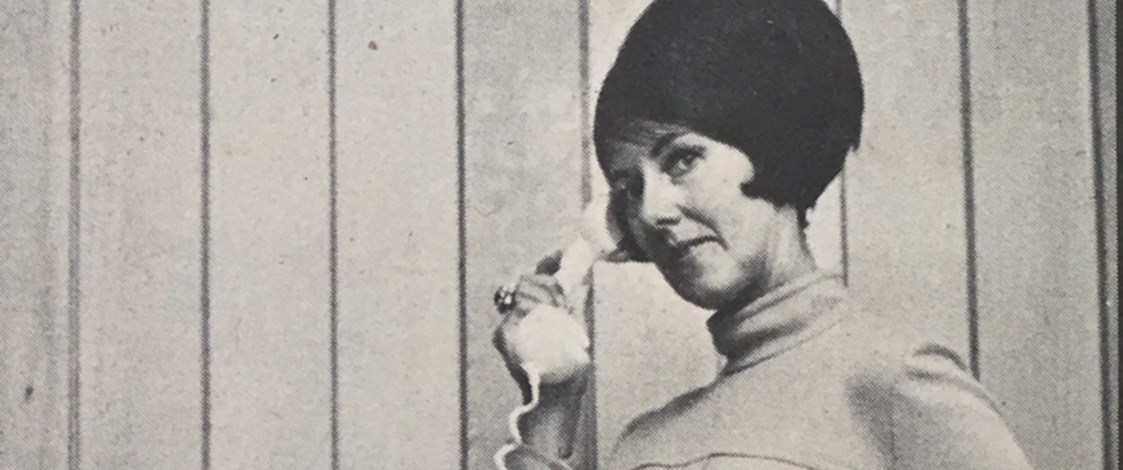
A question about a blouse seen in the US magazine, Seventeen, led to a New Zealand couple acquiring the licence to manufacture the first teenage fashion label for the local market. Nancy and Arthur Delaney, the owners of an Auckland fashion manufacturing business, were in New York when their inquiry about the blouse fabric led to an introduction to the owner of the American label, Jonathan Logan.
It was the mid 1950s, and back home in New Zealand most teenagers still shopped in the same department and retail stores as their parents. While 'teenage' fashion could be glimpsed in international magazines such as Seventeen, dedicated teen lines had not yet reached the market. The magazines provided inspiration for New Zealand teenagers who either sewed copies of the garments for themselves or took the magazine pages to their dressmakers. It was 1958 before the popular department store Milne & Choyce responded to this emerging market by introducing a 'Miss' department for teenage girls.
So when Nancy and Arthur returned home in 1955 with the patterns, sample garments and fabric for teenage label Jonathan Logan, they were introducing a bright new idea that was to change young women’s fashion. The label was incredibly popular in America and it was written at the time that if a teenage girl is considered a "good dresser", she will be wearing the labels Lanz or Jonathan Logan ('Teen-Age Culture' in Annals of the American Academy of Political and Social Science, 1961.)
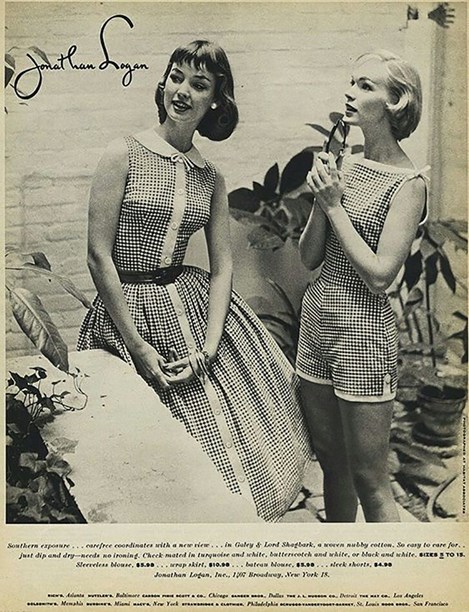
American magazine ad for Jonathan Logan, 1956. Image © Jonathan Logan.
David Schwartz had founded Jonathan Logan in 1944 and it quickly became known for creating youthful mid-priced garments for young women that were classy and dressy, rather than trendy. When Nancy and Arthur met David to ask about the blouse fabric they had spotted, they were surprised when the conversation led to an offer of a franchise. It was the perfect addition to their own fashion business, Promenade.
Ads for Jonathan Logan in New Zealand.
They had owned Promenade since 1953 when they bought and renamed an existing garment manufacturer on Upper Queen Street in Auckland. Arthur had been working as an accountant in the fashion industry and Nancy, who was a trained PE teacher, discovered she had an aptitude for design. She studied pattern making and took up the position of designer at Promenade, while Arthur managed the business.
Promenade grew quickly after they picked up the Jonathan Logan franchise from David Schwartz and soon his other labels were added to their production - Butte Knit, Junior Accent, Betty Barclay, R and K Originals, and Misty Harbor Raincoats.
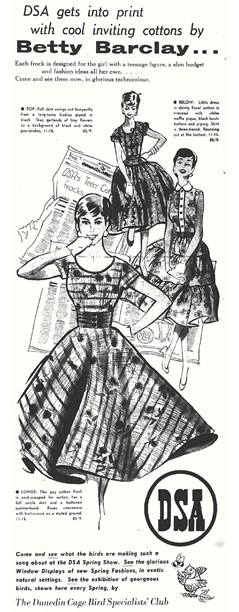
Betty Barclay dresses for teens were made in New Zealand by Promenade. This 1957 ad advertises a Dunedin stockist of Betty Barclay, the DSA.
Nancy told the Auckland Star in 1970 that they didn’t have to adjust the American patterns for the local market. "We’ve found that the life of the average American woman parallels that of the average New Zealand woman." And the timing proved beneficial; Nancy and Arthur were buying for the season that had just finished in the US.
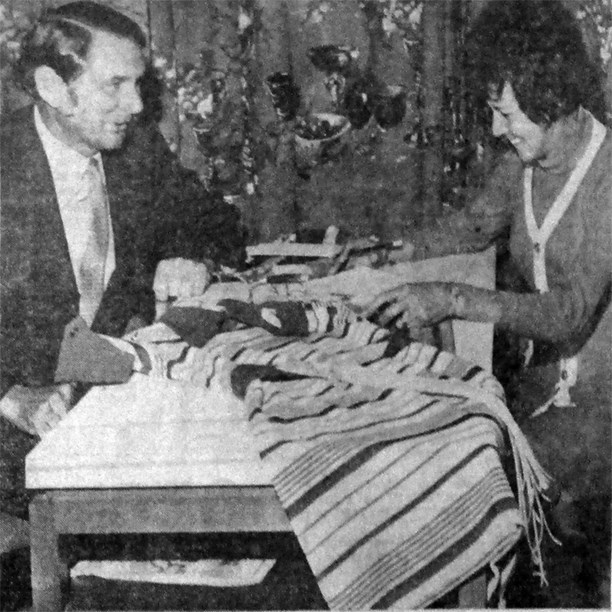
Arthur and Nancy Delaney photographed for the Auckland Star, 14 November 1970. Image © Auckland Star / Stuff.
In 1962 Nancy and Arthur sold their Promenade Company to Classic Manufacturing, a large Auckland company. The Delaneys also moved to Classic; the Promenade and JL labels continued to be designed and managed by Nancy, while Arthur took up a position as managing director. In 1964 Nancy opened a retail store, Fashion Inn, which stocked mainly Classic and Promenade clothing. The store was located in the Strand Arcade in Queen Street, and later she opened stores in Mt Maunganui and Paeroa.
When Classic was sold to Fashions Ltd in 1967, Nancy and Arthur stayed with the business, now known as Classic Fashions. Nancy continued as designer for the Promenade range while her role overseeing the Jonathan Logan labels meant that she travelled to the United States every year to select fashion styles for production in New Zealand.
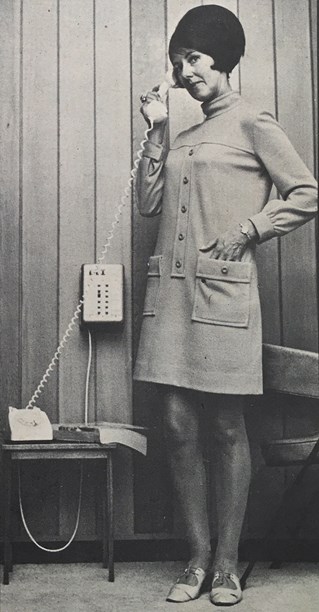
Nancy Delaney wearing Jonathan Logan, 1969.
But Nancy and Arthur longed to run their own business again, so in the early 1970s they left the prized Jonathan Logan franchises with Classic Fashions and started a new business with a colleague, Geoff Rendell.
They opened their business, Puritan, in premises on Graham Street in central Auckland. Instead of focusing on the teenage market, the Puritan label targeted more mature women. Arthur and Nancy were highly respected in the industry and the company gained a reputation for making top quality clothing. "I remember some of the denim garments they made, a smart tailored look also aiming for the ladies playing golf," recalls Thornton Hall designer, Isabel Harris.
In winter 1972, Puritan introduced a range featuring top quality denim with mix and match looks in skirts, pants, jackets and weskits. Apparel magazine described the range as having 'stand out in the crowd' appeal. It provided a somewhat dressier approach to denim and the wearer with a number of different options.
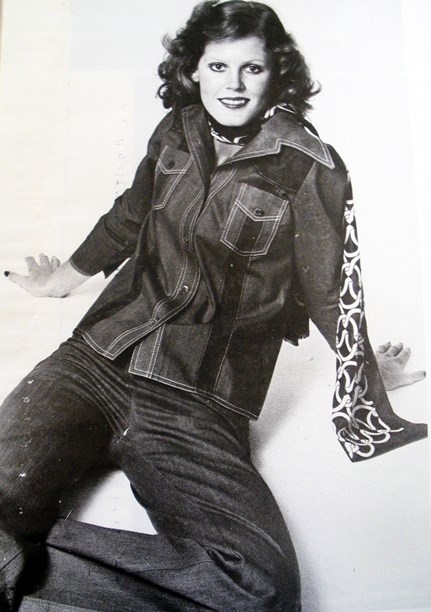
This Puritan denim jacket from 1976 was priced at $29.95 and the flared jeans were $24.80.
The Puritan company also manufactured for others including the Air New Zealand uniforms that had been designed by Nina Ricci of Paris in 1975. Most of the uniforms were made in Puritan’s factories while machinist Clair Cooper, who started working for Puritan in 1984, would make the special sizes. "We would have pilots come in for fittings and I made culottes for the women pilots."
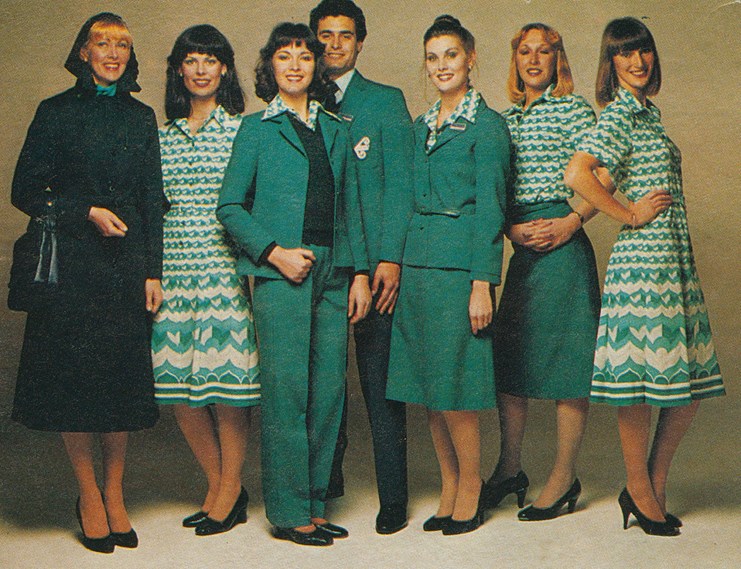
From 1975 to 1987 Air New Zealand staff wore a uniform designed in Paris by Nina Ricci, but made locally by Puritan. Image © Air New Zealand.
Puritan had factories located in Paeroa, Mt Maunganui and Tauranga. All the cutting, pressing, warehousing and despatching was done in Graham Street. Sometimes external make and trim factories were contracted when extra capacity was needed. Puritan supplied many retailers, including owner operators, small and large, and practically every department store in New Zealand. Graham Street had three showrooms each with three semicircular sales bays. With two house models, Shirley Waldegrave and Sue Pallett, the sales team could sell to up to nine different retail customers at the same time.
When his father died in the early 1980s, Geoff Rendell left the partnership to work for the family business, Rendells Department Store on Karangahape Road. More change was to follow when, in May 1984, Puritan bought another fashion business, The House of Raymonde. Nancy and Arthur moved Puritan from Graham Street to the House of Raymonde premises in Birkenhead, but after realising their customers didn’t want to travel to the North Shore, they returned to the CBD and a building on the corner of Cook and Nelson Streets.
But by the end of 1985 Nancy and Arthur had sold all their fashion businesses and retired to the Gold Coast in Australia. Thornton Hall bought Puritan and moved the staff to premises on Union Street. Although it was the Puritan factories in Paeroa and Tauranga that had attracted Thornton Hall to the purchase, they nevertheless continued to produce the label, with Ches Pritchard responsible for producing the Puritan range.
Arthur died on the Gold Coast in about 2005. Nancy died in January 2020.
Text by Kelly Dix. Banner image of Nancy Delaney from Thursday magazine, 1969. Image © unknown.
Published June 2020.